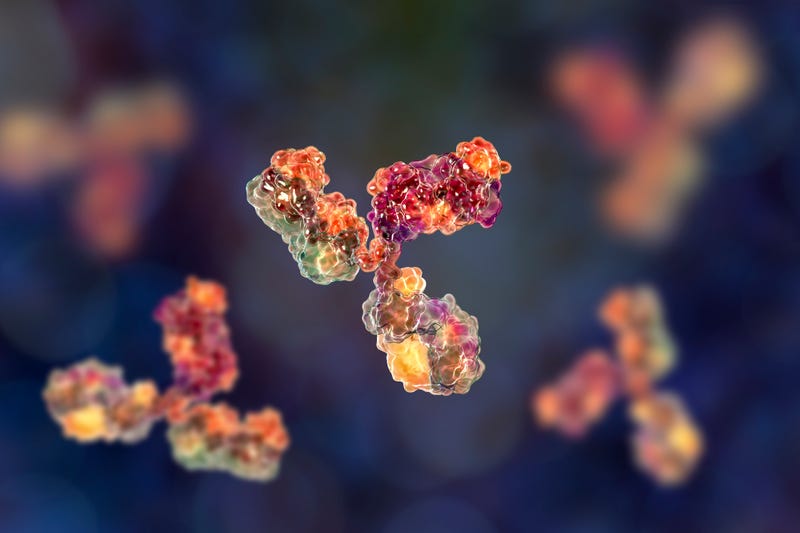
An injectable monoclonal antibody cocktail this Wednesday became the first treatment of its kind approved by the U.S. Food and Drug Administration for prevention of COVID-19 before exposure.
A statement from the FDA announcing Emergency Use Authorization for AstraZeneca’s Evusheld monoclonal antibody treatment explained that the medication “may be effective for pre-exposure prevention for six months.”
AstraZeneca has already agreed to supply the U.S. government with 700,000 doses of Evusheld, according to a company statement.
“The U.S. government has indicated that it plans to distribute these doses to states and territories at no cost and on a pro rata basis,” it said. However, health care facilities may still charge to administer it, reported NBC News.
Monoclonal antibodies are laboratory-made proteins that mimic the immune system’s ability to fight off pathogens such as COVID-19, according to the FDA. Previously, monoclonal antibody treatments have been approved in the U.S. as a COVID-19 treatment and a prevention method for those who were recently exposed. The Evusheld treatment is only for pre-exposure prevention.
Tixagevimab and cilgavimab are the long-acting monoclonal antibodies present in Evusheld. Both are directed against the spike protein of SARS-CoV-2 and are designed to block the virus’ attachment and entry into human cells. One dose of Evusheld is administered through two consecutive intramuscular injections, one for each antibody.
A randomized, double-blind, placebo-controlled clinical trial was conducted to test Evusheld. Adults greater than age 59 or with a prespecified chronic medical condition or at increased risk of SARS-CoV-2 infection for other reasons who had not received a COVID-19 vaccine and did not have a history of SARS-CoV-2 infection or test positive for SARS-CoV-2 infection at the start of the trial were able to participate. Recipients saw a 77 percent reduced risk of developing COVID-19 compared to those who received a placebo.
Potential side effects associated with the treatment include hypersensitivity reactions such as anaphylaxis, bleeding at the injection site, headache, fatigue and cough. More participants also had serious cardiac adverse events after receiving Evusheld compared to placebo, though those participants already had risk factors for such events.
In the emergency use announcement, the FDA stressed that “pre-exposure prevention with Evusheld is not a substitute for vaccination in individuals for whom COVID-19 vaccination is recommended.”
“Vaccines have proven to be the best defense available against COVID-19. However, there are certain immune compromised individuals who may not mount an adequate immune response to COVID-19 vaccination, or those who have a history of severe adverse reactions to a COVID-19 vaccine and therefore cannot receive one and need an alternative prevention option,” said Patrizia Cavazzoni, M.D., director of the FDA’s Center for Drug Evaluation and Research.
So far, the Pfizer BioNTech COVID-19 vaccine has full FDA approval and two others have emergency use authorization from the agency.
Evusheld is recommended for those who have a moderate to severely compromised immune systems and may not mount an adequate immune response to COVID-19 vaccination or those who have a history of severe adverse reactions to COVID-19 vaccines or vaccine components. It is approved for people age 12 and older who weigh at least 88 pounds.
As the medication can interfere with the effectiveness of COVID-19 vaccines, the FDA recommends that patients wait at least two weeks after getting a vaccine to receive Evusheld treatment.
“Patients should talk with their health care provider to determine whether Evusheld is an appropriate pre-exposure prevention option for them,” said the FDA.
AstraZeneca announced Wednesday that they are testing to see if the treatment is effective against the recently identified omicron variant of COVID-19.


